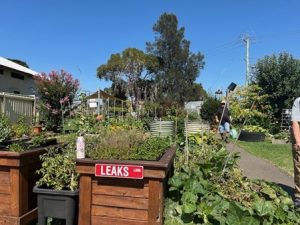Recent public discussion of the role of nuclear power in Australia’s low carbon transition and the opposition Coalition proposal to develop seven nuclear reactors in Australia Dutton, Littleproud, O’Brien – Media Release – Australia’s Energy Future – Peter Dutton MP has promoted not only political debate but investment discussion across Australia.
U Ethical’s investment policy specifies a 5% materiality threshold for uranium mining, and zero tolerance for investing in companies that produce nuclear power and/or nuclear weapons. The materiality threshold of 5% allows consideration for investing in companies that may also be producing other products and/or have infrastructure that may be of benefit to the rollout of renewable energy.
This exclusion is derived from our relationship with the Uniting Church Synod of Victoria and Tasmania. As an independent not-for-profit and B Corp organisation that is part of the Uniting Church’s umbrella, many of our ethical policies are grounded on this relationship.
The Uniting Church has long-standing opposition to nuclear power and uranium mining, stemming from a position in 1977. This statement feels as current in 2024 as it did then, and states in part:
“We do not share the optimistic belief in man as a being who could overcome all the risks connected with the use of nuclear energy if he only set his mind to it. … There are no absolute safeguards against the use of uranium and its waste products for destructive purposes.
“We share the widely held anxiety in regard to the dangers of waste products – plutonium and others. We feel that present-day generations have no right at all to impose on future ones the enormous cost of human resources to care for the wastes and obsolete installations they leave behind them, to say nothing of the continuous risks this involves.”
The Coalition’s proposed policy raises further ethical and responsible investment questions, including the fact that opposition leader Peter Dutton has threatened to use Commonwealth compulsory acquisition powers to acquire the coal sites needed, which raises troubling questions over social license to operate. Nuclear power Australia: AGL coal sites to go green, not nuclear (smh.com.au)
U Ethical also believes that just transition, one that takes people and communities as well as planet into consideration when making investment decisions, has an important bearing when considering developing nuclear power in Australia. Whilst the Federal Opposition announcement refers to an unspecified number of “high paying, multi-generational jobs” in communities where nuclear power plants are built in its policy, the former (Coalition) government estimated in 2021 that 160,000 jobs could be created to 2030 by investing in low emissions technologies to transition Australia’s economy. https://webarchive.nla.gov.au/awa/20220603084309/https://www.industry.gov.au/data-and-publications/technology-investment-roadmap-low-emissions-technology-statement-2021
Beyond the ethical stance that our investment policy is founded, there are financial and investment challenges to the policy as proposed.
Nuclear is by no means a cheap energy source. In fact, when assessing levelized costs of energy estimates, new nuclear plants are more expensive than wind and solar projects on a $/MWh basis in most geographic regions. Small modular reactors (SMRs) have long been touted as an answer for the high cost of larger scale reactors, however despite being discussed for over a decade, they remain a theoretical concept, with no SMRs yet in commercial operation.
Potential investors in or developers of nuclear power plants have reacted cautiously to the proposed policy. In June, Origin Energy chief executive Frank Calabria said he “supported nuclear energy having a role in the grid … but believed it would be at least a decade before it becomes a viable alternative” Energy transition must be orderly, says Origin ASX:ORG boss Frank Calabria (smh.com.au)
Meanwhile, AGL has ruled out using decommissioned coal-fired power generation sites at Loy Yang and Liddell for nuclear development. AGL chief executive Damien Nicks saying in March, “there is no viable schedule for the regulation or development of nuclear energy in Australia, and the cost, build time and public opinion are all prohibitive.”
Further, the country’s largest superannuation funds have also ruled out investing in nuclear on varying grounds as well. Aware Super, UniSuper, Cbus rule out financing Peter Dutton’s nuclear energy plan (afr.com)
U Ethical remains of the view that investing in Australia’s transition to a low-carbon economy represents both a reduction in long-term risk and capture of long-term opportunity for our clients, consistent with our ethical policy and investment analysis.
Authors:
Cam Hardie, Portfolio Manager – Equities
Rachel Alembakis, Stewardship Manager





